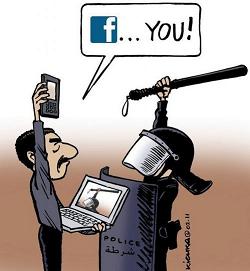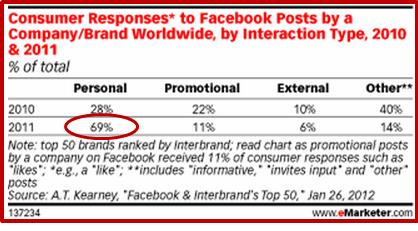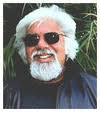Last week, Lori Lewis spent an afternoon digging into Facebook’s first-ever Marketing Conference. In today’s post, she deals with a familiar issue to Jacobs Media clients – the acknowledgement gap. Here’s her “take,” and as always, we’d love to hear yours.
 It used to be that in order to broadcast a message to many, to make change happen, or to simply hold a company accountable for questionable actions, you had to have some kind of power, be it status, money, or position.
It used to be that in order to broadcast a message to many, to make change happen, or to simply hold a company accountable for questionable actions, you had to have some kind of power, be it status, money, or position.
But today, those rules no longer apply.
Technology has created a more open and connected world giving everyday people a voice. And we’ve even seen at times how that voice has become big, and even revolutionary – from overthrowing governments to simply holding people/brands responsible if they question your actions.
For example, when the Susan G. Komen for the Cure foundation pulled (and ultimately reinstated) funding to select Planned Parenthood affiliates, 10,000 people took to their individual social circles and raised $3 million in three days for Planned Parenthood. Ultimately, Komen’s Vice President of Public Policy was forced to resign and the charity remains in “recovery mode.”
Komen was just one example of a major brand that seems to have a misconception (and/or dis-connection) about today’s open and connected world. Brands are nearly destroying their reputations because they somehow think the “old rules” still apply; that it doesn’t matter if you stray from its core values, confuse consumer expectations, or dismiss or ignore complaint; that dialogue is a one-way street and that a single ticked off consumer doesn’t matter – after all, a big corporation is much more powerful than one small person’s voice.
But that’s just no longer the case.
And beyond companies’ lack of real understanding of this new world social order, there’s an equally important fundamental being dangerously ignored.
It’s one word.
Acknowledgement.
Why do brands have such a hard time with this simple concept?
 Last week at Facebook’s first ever Marketing Conference in New York, Sheryl Sandberg (pictured), Facebook’s CFO, said it best, “If you want to talk to me [on Facebook], you have to listen to me, too.”
Last week at Facebook’s first ever Marketing Conference in New York, Sheryl Sandberg (pictured), Facebook’s CFO, said it best, “If you want to talk to me [on Facebook], you have to listen to me, too.”
Sandberg was saying that we’re so busy talking at people socially, that we’re not listening. And oftentimes, we’re not responding. The more consumers become connected, the more they are demanding to be heard and acknowledged.
Last December, consulting firm A.T. Kearney found that 94% of the top 50 brands on Facebook use the platform as a one-way promotional device (and that’s even up by 3% from 2010.)
And when it comes to acknowledgment – about half don’t even respond to a single customer comment.
As brands, we have to do better. And look at the types of posts consumers react to – the personal ones, not the promotional clutter and hype.
 What does this say about our messaging on Facebook and the social space? When acknowledgment is low and communication is one-way and promotional in tone and flavor, an opportunity to build strong audience relationships is lost.
What does this say about our messaging on Facebook and the social space? When acknowledgment is low and communication is one-way and promotional in tone and flavor, an opportunity to build strong audience relationships is lost.
Another meaty quote heard at the Facebook conference came from Wal-Mart EVP and CMO Stephen Quinn who suggested that brands take a more traditional approach with this social space. Quinn said, “[We] need to go back to the old days of having shopkeeper style relationships to ensure local customer support.”
 Fred told me about a meeting he recently attended where Nick Michaels (pictured) – writer, narrator, broadcaster, imaging legend, and producer/host of The Deep End – talked about how old school values are the important building blocks even in the new media world. Courtesy, kindness, caring, respect, and treating others the way in which you wish to be treated are all integral in the social/digital space.
Fred told me about a meeting he recently attended where Nick Michaels (pictured) – writer, narrator, broadcaster, imaging legend, and producer/host of The Deep End – talked about how old school values are the important building blocks even in the new media world. Courtesy, kindness, caring, respect, and treating others the way in which you wish to be treated are all integral in the social/digital space.
These values that we were all taught – at home and in school – are the values that work today on Facebook, with clients and listeners, and of course, on the air.
To that end, Wal-Mart’s Quinn supported that concept by adding, “’Social by design’ needs to become an integral part of organizations, which calls for big changes in management.”
Bottom line, social networks elevate the everyday consumer’s expectation of impact – to inspire other people to think, react and move on a dime. They can expand your reach to a level you could never do on your own.
But it’s a matter of acknowledging them in the first place and being very clear with what you’re trying to achieve. What kind of stories are you trying to get fans to talk about? Brands that win in this space are the ones that exercise the basic fundamental strategic building blocks that serve and strengthen their company’s assets and its connections.
Be focused on the brand’s essence, speaking in a singular voice, and acknowledgement – the basic respect that fans expect each day. We’ve all seen the blunders, from Susan G. Komen to Netflix and others whose clumsy social moves have backfired. A single misstep in any of those areas can tarnish what you work so hard to establish every day – your good name.
As some companies in radio move to a more top-down impersonal management style, the potential for your brand to be real, to connect, and to strengthen relationships grows stronger.
We’re at the very beginning of so much possibility – but only once consumers are truly put first with everything we do.





Great piece Lori!
I still see too many broadcasters “broadcasting” on Facebook and Twitter instead of taking advantage of the engagement opportunity that’s right in front of them. They use it more as a bullhorn where it should be more like a telephone.
I feel that radio station management needs to both empower and more importantly train its people, the air talent and others involved in social media…on how to converse with listeners online.
Just like an aircheck session, Social Media interaction is something program directors need to spend time reviewing, critiquing and providing guidance to staff on social media engagement with listeners. And it does start with the very values that Nick Michaels mentions in the above post.
Social Media deserves as much attention as time spent on Selector or writing that next new clever piece of imaging.
Thank you again, Lori (and Fred) for sharing!
Dan, I’m sure Lori will comment, too. You are correct that social interaction needs to be a PD priority. Many are coming around to this, but most or so inundated with addtional duties as it is that social time can be overwhellming. It is a challenging situation that as the industry cuts back, the need for more engagement has never been higher. I wish I could solve this one. Thanks again for contributing and sharing.
Thank you, Dan. Every person counts – it’s time brands start acknowledging everyone. When you validate people’s excitement for your brand, you’re creating communities that one day – you may need when something goes wrong.
I loved this article, because I’ve wanted to write one myself about how exciting it is to live in this new age of individual “public feedback” that makes a difference. Add to her list the pull back on fees by Bank of America and Verizon and most recently the public outcry about Rush Limbaugh’s comments and the subsequent pull back by brands that are listening to consumers speak out. The “power of the people” will only grow stronger as we realize that as a group we actually do have a say. It’s a pivotal moment in history…and we are living it. Very exciting.
Hi Ric,
Interesting timing of this piece, isn’t it? I wrote it before this Rush “incident.” Watching John Deere’s Facebook page, I was wondering if they were going to do anything with all of these negative posts.
I see today they have decided to bail from Rush due to overwhelming consumer complaints. Everyday people have a voice today. Thank you for being part of the conversation.
Ric, Lori gave you good perspective. Social is a double-edged sword as many brands (and political candidates) have learned. There is clearly a swing of influence taking place that companies need to grapple with. While everyone’s talking about “how to make money with Facebook,” they should be considering the ways in which they can better and more genuinely connect with their customers. Appreciate you taking the time to contribute to our blog.
As the others have said Fred, this piece is especially timely with the RUSH story, but even without that…as we speak about here..it’s not about the “post” it’s about the “conversation”. That piece made it to all staff today. Nice work to all
BTW, sat with Lori at a dinenr in Nashville a couple of weeks ago..very impressive. :)Lori, fun to visit with you!
DP
Thanks, Dave. Appreciate the kudos. Lori has brought a lot to our company and our mindset. Always great to hear from you.
Hi Dave, Great to hear from you. It was a pleasure to meet you. Stay in touch!
Lori –
Very nice work. These are the topics broadcasters need to educate themselves on so they can adapt and move forward in serving listeners on their terms.
Fred you mentioned – “It is a challenging situation that as the industry cuts back, the need for more engagement has never been higher. I wish I could solve this one”.
Gary V has been early in talking about “old school rules”. Here is a short clip of Gary’s suggestions on how companies could start to tackle social. I think you’ll find it reminiscent of old time guerrilla warfare tactics radio used to use. Old school is the new school!
https://www.youtube.com/watch?v=FubJDOEs-4c&feature=related
Here’s one more concept broadcasters need to get their head around…Digital Darwinism. It’s the evolution of consumer behavior when society and technology evolve faster than some companies’ ability to adapt.
This is a jaw dropping read from Brian Solis that expands on Lori’s topic, it’s called – The Importance of Brand in an Era of Digital Darwinism.
https://bit.ly/zlUkbz
The relevance clock is ticking for broadcasters.
Mike, you’ve once again framed our conversation, bringing new, relevant content to the table. Gary’s Ninja units speak to the importance of that “small culture” and doing things one digital bite at a time. And the Digital Darwinism point is worthy of everyone who reads this blog’s time. Tick tock. Thanks, Mike.
Thank you for the kind words and thoughtful insight, Mike. I am dedicated to assisting our industry to these social changes. I believe we’ll get there. 🙂
The statistic on the response brands get from personal posts is an important reminder that the human element is an integral part of social media. And you can’t humanize your brand if you’re only spitting one-way promotional messages.
On the money, Stephanie. Thanks for that comment and for reading our blog.
Hi Steph!
Always enjoy your insight. As Fred already said, you’re on the money!